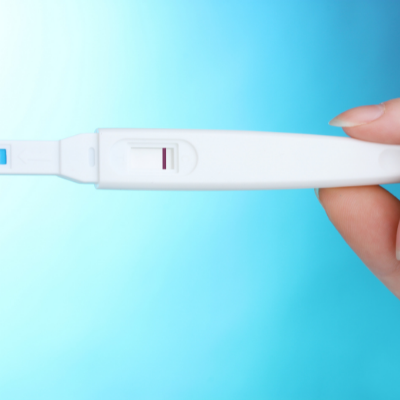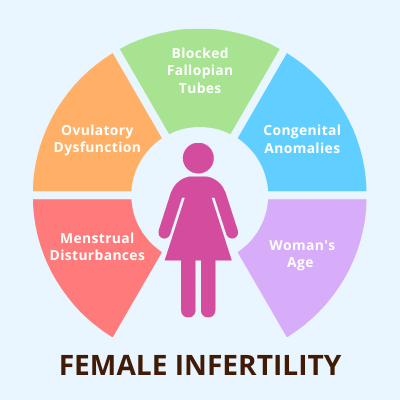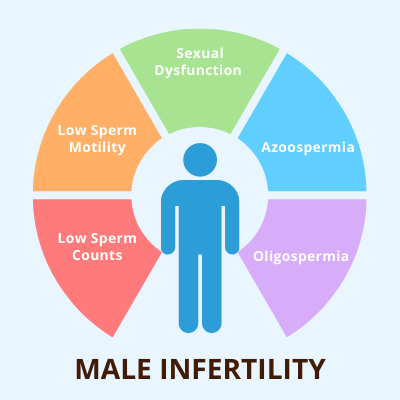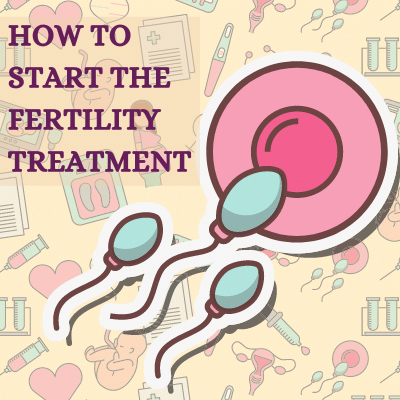When it comes to Fertility and Infertility Treatment issues it’s much more than conceiving and having babies. The human mind has a multitude of feelings allied with pregnancy and birth events. The new life brings the feeling of joy, satiety, completeness, and many more.
But life doesn’t always go our way. Sometimes the couples are unable to conceive because of one or the other reasons.
So, such couples need to reach out for medical help but many times they find it difficult to take the first step. So, we are here to help you guide on how to start with fertility treatments.
When Should I go to a Fertility and Infertility Treatment Specialist?
At the outset, one should know that young couples who are trying to conceive should wait and try naturally for pregnancy for 12 months before embarking on any fertility treatments.
Yes, within 12 months of regular unprotected relations approximately 85% of couples do achieve pregnancy without medical assistance. Rest of the 15 percent of couples who are unable to conceive over these 12 months further need evaluation.

Further, it’s imperative to understand that if the lady is more than 35 years of age, earlier evaluation is warranted after 6 months of unsuccessful efforts to conceive. This is due to the observed age-related decline in fertility. In case you have any suspected or known problems that can hinder pregnancy, you should seek evaluation for infertility immediately, you should not wait for 12 long months.
These conditions that can limit fertility are menstrual disturbances irregular menses, infrequent menses, absent menses, or when there is any Known or suspected uterine or tubal disease, fibroids, endometriosis, etc.
In cases of Known or suspected male sub-fertility also, evolution should begin earlier. The treatment depends on the cause of infertility. We need to find out why exactly you are unable to conceive, what are the factors hindering pregnancy?
For Pregnancy to Happen:
The Basic Steps are:
The egg is released from a woman’s ovaries.
The egg is picked up by the fallopian tube and travels down the fallopian tube where it can meet sperm to become fertilized.
Then further it goes into the uterus and gets implanted.
So, all these steps are essential for getting pregnant.
About one-third of infertility cases can be attributed to male factors and about one-third to factors that affect women.
For the rest of one-third of infertile couples, infertility is caused by a combination of problems in both partners or, it is unexplained (in about 20 percent of cases, is unexplained)
What Can Cause Infertility in Women?
The most common female infertility factor is an ovulation disorder.
It accounts for up to 40% of infertility in women
It commonly results in obvious menstrual disturbances (infrequent menses/ absent menses oligomenorrhea/amenorrhea) but can be more subtle.
The most common causes of ovulatory dysfunction include polycystic ovary syndrome (PCOS), obesity, weight gain or loss, strenuous exercise, thyroid dysfunction, and hyperprolactinemia.
Other causes of female infertility include blocked fallopian tubes, which can occur when a woman has the pelvic inflammatory disease, tuberculosis, or endometriosis (a sometimes painful condition causing adhesions and cysts).
Congenital anomalies (birth defects) involving the structure of the uterus and uterine fibroids are also associated with infertility.
A woman’s age can have a big effect on her ability to have a baby, especially as she enters her 30s and 40s. For a healthy woman in her 20s, the chances of conceiving each month is 20-25%. But by the time a woman is 40 years old, the chances are 6-8% or less.

The process of reproductive aging has traditionally centered on the principle that human oocytes peak in number during fetal life, undergo ovulation or atresia thereafter, and do not regenerate.
Ovarian reserve is defined as the number of oocytes remaining in the ovary, or oocyte quantity (oocyte number). Ovarian reserve, or oocyte quantity (oocyte number), is different from oocyte quality, which relates to the potential of a fertilized oocyte to result in a live-born infant.
Female infants are born with 500,000 to 1 million oocytes, follicular atresia and ovulation result in a slow depletion of oocyte number over time, and menopause subsequently ensues. Ovarian reserve correlates inversely with age, but there is considerable variation in ovarian reserve among women of the same chronologic age.
What Can Cause Infertility in Men?
The most common male infertility factors include low sperm numbers or low sperm motility. Sometimes it can be sexual dysfunction like erectile or ejaculatory dysfunction, oligospermia, azoospermia (no sperm cells are produced), and oligospermia (few sperm cells are produced)
So, these all can be the reasons of infertility.

How is The Fertility and Infertility Treatment Work Up Done?
And as it’s very clear that infertility can involve both female and male partners, Diagnostic evaluation of the infertile female should be accompanied by evaluation of the male partner. In fact, it’s the first step of your parenting journey. The fertility journey starts with figuring out the reason why you are unable to conceive.
The fertility evaluation needs a comprehensive medical, reproductive, and family history combined with a thorough physical examination and certain investigations.
Diagnostic evaluation for infertility should include an assessment of reproductive tract structure by Transvaginal Ultrasonography. This allows us to check the uterus and ovaries for abnormalities such as fibroids and ovarian cysts.
Then the ovulatory function is assessed by serial ultrasound for follicular study
The underlying cause should be sought because specific Fertility and Infertility Treatment may be indicated, and some conditions may have other health implications and consequences.
The patency of the fallopian tubes is assessed by HSG. It has been the standard test for tubal patency. Hysterosalpingogram is an X-ray procedure to see if the fallopian tubes are open and if the shape of the uterine cavity is normal. A catheter is inserted into the opening of the cervix through the vagina. Liquid containing iodine (contrast) is injected through the catheter. The contrast fills the uterus and enters the tubes, outlining the length of the tubes, and spills out their ends if they are open
Then ovarian reserve is tested by AFC and AMH.
Serum thyroid-stimulating hormone (TSH) and prolactin determinations can identify thyroid disorders and/or hyperprolactinemia, which may require specific treatment.
Then for the male factor most commonly done investigation is semen analysis. Further testing is required if semen analysis is abnormal
We conduct this infertility evaluation in a systematic, expeditious, and cost-effective manner so as to identify all relevant factors,
Initially, we always emphasize the least invasive methods for the detection of the most common causes of infertility.
At the same time the pace and extent of evaluation in your case, we take into account your preferences, patient age, the duration of infertility, and unique features of the medical history and physical examination.
What Are The Fertility and Infertility Treatment Options?
Finally, as per the diagnosis your treatment plan is made which can be either
- Ovulation induction with timed relations
- Ovarian stimulation with intrauterine insemination
- Or In vitro fertilization straightaway
Along with the common fertility treatment options like IVF, couples may also want to explore Advanced Reproductive Technologies (ART) for fertility preservation. ART can be a proactive step, allowing individuals to preserve their fertility for future family planning. Read more about ART for fertility preservation here.
We believe, with all this basic knowledge you will find yourself more confident while initiating and going through the Fertility and Infertility Treatment.

